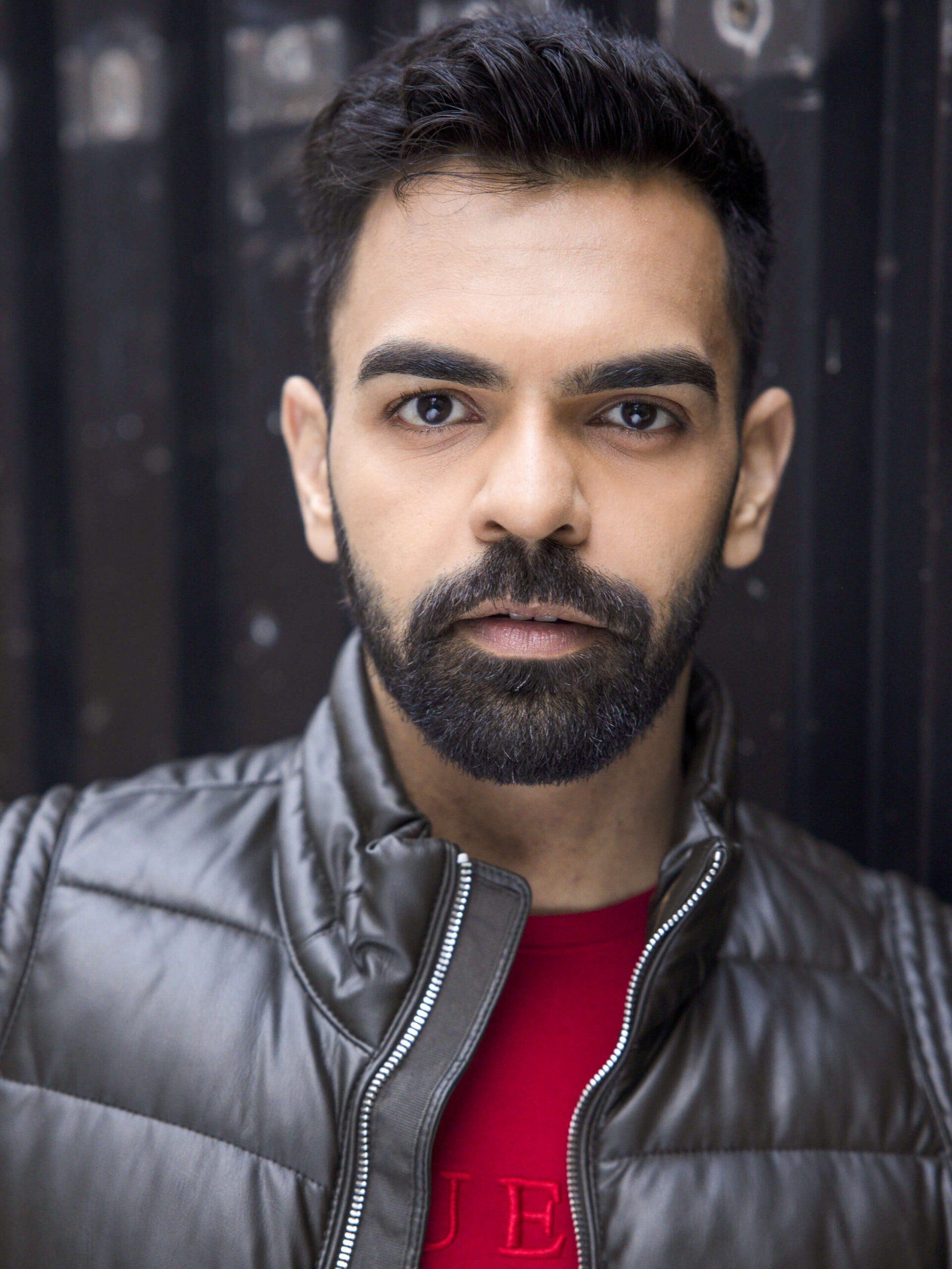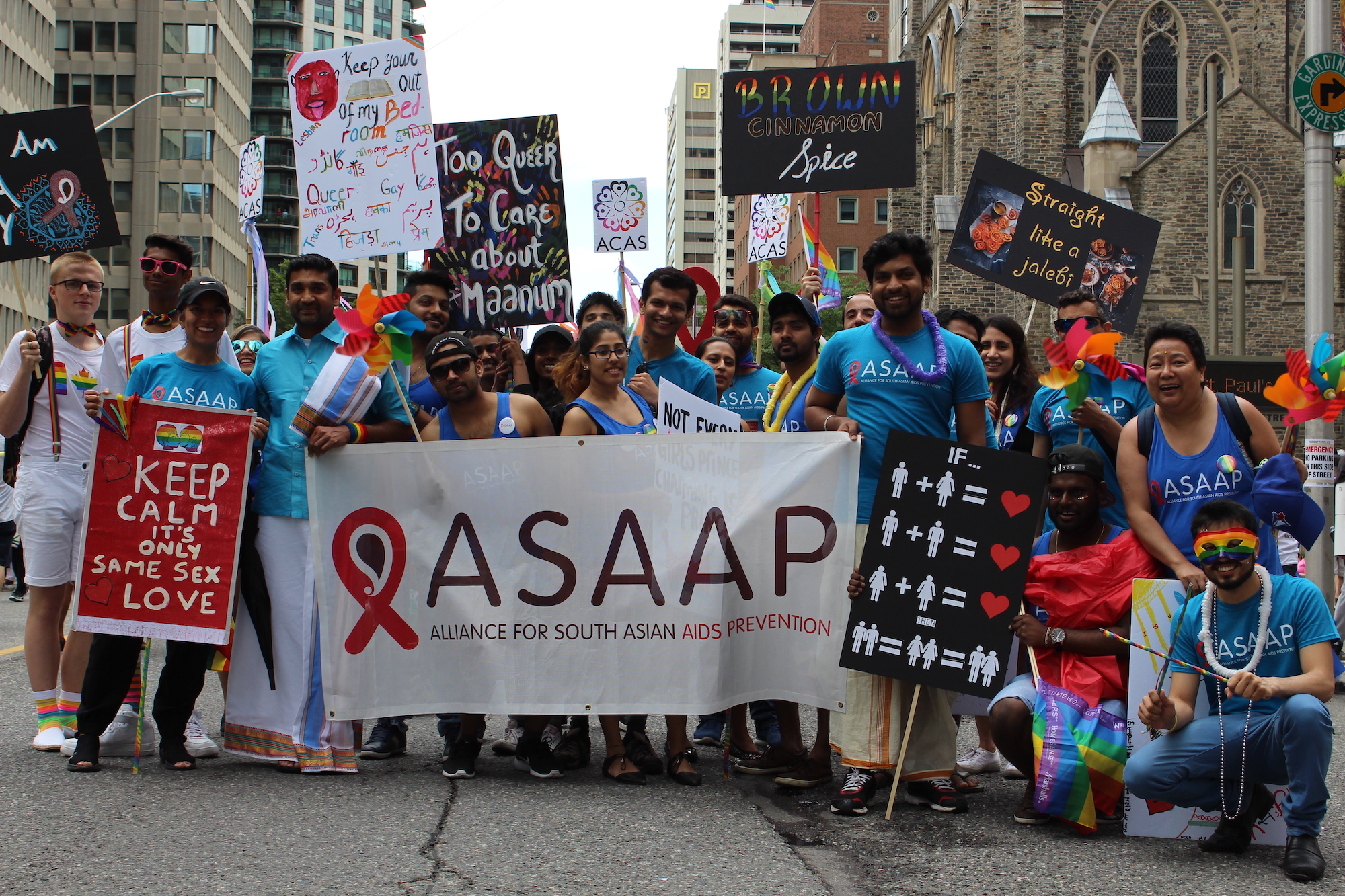More than three decades ago, news of a South Asian couple dying from AIDS-related illnesses devastated the LGBTQ2S+ community in Toronto. At the time, in-language and culturally sensitive care were not easily accessible, and the couple suffered because of it. Their deaths sparked a community movement that saw queer and trans activists coming together to establish a culture-specific resource to prevent similar incidents from happening.
“South Asian people need HIV-related or sexual health-related information in a manner that makes sense to us from a cultural lens, in languages that make the most sense for our communities,” says Praney Anand, executive director of Toronto’s Alliance for South Asian Aids Prevention (ASAAP).
Since beginning in 1989, ASAAP has grown from focusing on HIV/AIDS care to also supporting queer newcomers to Canada. And the organization has expanded its programs to support Middle Eastern and Indo-Caribbean people.
Xtra spoke to Anand via video call from his home in Toronto about the pandemic’s effect on ASAAP’s programs and on newcomers, and about the upcoming election.
How did the pandemic affect ASAAP?

Credit: Courtesy Praney Anand
Like many organizations, we had to quickly move to virtual programming. Speaking from an equity, anti-oppressive lens, it’s always good not to assume that people have the capacity, space and resources to work from home—that’s a very privileged statement. So we had to take inventory of what’s possible for the staff and ensure people had the means to continue working from wherever they were working.
For service users, which is more important, the reason why our programs were successful was because they were in-person. They have offered community to a lot of people who feel isolated, but the pandemic exaggerated their experiences of isolation.
How so?
For a lot of newcomers, especially for a queer newcomer, one of the things they want to find quickly is a community of queer people, of people who might look like them and who might speak the same language. That was taken away from the community because of isolation. Because of lockdowns, that isolation expanded even more.
The other challenge is that not everyone has access to a smartphone, a laptop or a device that they can join virtual programs with. Some people may not even have the privacy to do that. What if they’re living with other people who they’re not out to? What if they’re not out about their HIV status, and live with family or friends? How do they attend a session that they really need?
How did you overcome this challenge?
Thankfully, all our program co-ordinators have a very good, long-standing trust with our service users, so they feel comfortable calling or just reaching out via email. Because that connection was strong, I don’t think we’ve lost touch with anyone in particular. But I really feel for the ones who are new to the country or don’t have the means or capacity to be able to connect virtually.
Aside from going virtual, did you add programs to cater to the community’s needs during the pandemic?
In spirit, we’re not limited by the few things that we offer officially, like the clear navigation for people living with HIV, newcomer services or sexual health. This past year has been a lot about COVID-19 education and the COVID-19 vaccine. We’ve been really instrumental in making sure that people who are facing additional barriers to accessing the COVID-19 vaccine got the means to get in line and get vaccinated.
It was not very easy for a lot of our service users to go online and wait for an hour and a half to book an appointment. That’s really not possible for a lot of people who have precarious job situations or have other priorities to manage families. ASAAP rose to the occasion and ensured that people who were facing systemic barriers to getting a COVID-19 vaccine got the chance to get it pretty early on. We also ensured that South Asian people, queer people, people living with HIV did not have to face any kind of stigma or additional barriers when they accessed the vaccine.
“We’ve been talking about our issues for 30 years. And are we done? No.”
In the midst of a federal election, how can a new government collaborate with your organization?
When it comes to racialized people, or people living with HIV, or racialized queer people, or the intersection of all three, issues tend to be ignored. If these people bring issues forward, then there should be a place for dialogue and for an action-oriented response. We can talk about our issues—we’ve been talking about our issues for 30 years. And are we done? Have we solved all of it? No.
What are some of the steps we can take? There has to be that open dialogue and transparency when it comes to working with marginalized communities.
What commitments do you want from federal parties?
The key messages I want to hear when I think of South Asian communities, Middle Eastern communities, queer communities and people living with HIV are messages around trust and openness and respect. I want understanding of our values and responsiveness to the needs of the neighbourhoods that we live in and proper access to basic necessities.
We’ve come in contact with people who probably don’t even have the resources to buy basic sanitary products, like toiletries. So how are we ensuring that everyone is feeling that they are respected as a human being and that their needs are being heard and responded to?
I hope they look at this and bring it down to the basics of respect, trust, and openness and responsiveness.
What do you hope to see from the next federal government?
The government needs to realize that the work we’re doing is important and it’s needed. It’s really important for the people who do it and it’s really important for the people we serve. That needs to be really understood.
If there are funding opportunities that are for racialized people, they should be looked at and reviewed from a particular lens that centres on listening to what community members are saying.
We need more funding opportunities, more collaboration, more openness and more transparency around how policies are being made and how funding is being dispersed. All of that is something that I would really appreciate.
I would also say: provide more support in writing and finding those grant applications. The smaller an agency is, the chances are that they have less capacity to write a strong grant application. And so, are we really levelling the playing field?
This interview has been edited for length and clarity.


 Why you can trust Xtra
Why you can trust Xtra


